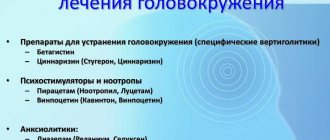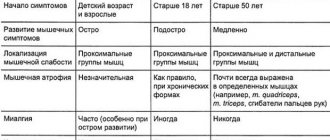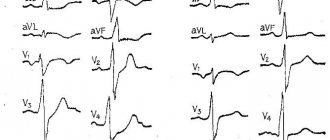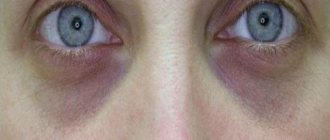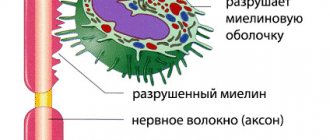Chronic fatigue syndrome is a disease when a person constantly feels “broken” mentally and physically for at least six months, and this does not go away even after a long rest. The main cause of the disease is considered to be infection with viruses, mainly of the herpetic group (the main cause is called the Epstein-Barr virus), and the pathology itself is also called benign myalgic encephalomyelitis, which means “inflammation of the brain and spinal cord, occurring with muscle pain and having a benign (then there is a course that does not end with life-threatening complications.”
The main number of cases are residents of large cities, who are in the age group of 25-45 years (that is, the most able-bodied). This is explained by the fact that this particular category of the population, in an effort to provide for their family and achieve career growth, leads such an exhausting lifestyle that they do not pay attention to the symptoms of the disease they develop or do not treat them and immediately go to work. Most often, signs of chronic fatigue syndrome can be found in people who are entrusted with great responsibility at work and must be extremely attentive: health workers, air traffic controllers, people associated with night transport (especially rail) transportation.
Constant fatigue. Possible reasons
There are many reasons for constant fatigue. Lack of energy at the end of the working day is considered the norm and here it will be enough to get enough sleep. But it happens that even after a full sleep you feel overwhelmed and tired.
Here are some possible reasons why you feel weak and lethargic:
- Lack of vitamins and vital elements.
We are talking primarily about vitamins
B, D, C, potassium, iron, magnesium, iodine, etc.
To determine what exactly your body is missing, you should take tests and undergo an examination. The vitamins and biological microelements necessary for the body are contained in food products, which means that if they are deficient, the right solution may be to organize your diet. In any case, you should consult a specialist. - Hormonal imbalance.
Hormonal imbalance in women and men can have external and internal signs. Lethargy and fatigue are one of its most harmless manifestations. If, along with fatigue, headaches, frequent menstrual irregularities (in women), increased sweating, mood swings, sudden changes in weight, etc. occur, you should consult a specialist and under no circumstances self-medicate. Most often, hormonal imbalance is caused by a malfunction of the thyroid gland. - Depression.
The symptomatic picture of a depressive state is varied and may have signs of serious illnesses: a feeling of heaviness in the chest, headaches, nausea, irritability, lack of appetite or, conversely, a tendency to overeat. A person suffering from depression is plagued by negative thoughts, decreased self-esteem, a feeling of worthlessness, and a lack of interest in life. - Vegetovascular dystonia.
This is a whole complex of serious symptoms, including dizziness, interruptions in heart function, insomnia, indigestion, etc. - Colds, flu.
Accompanied by high fever, joint pain and general malaise. Body aches are one of the signs of inflammatory processes in the body. - Heart problems.
This symptom is difficult to diagnose at home. Constant weakness coupled with heart pain is an obvious reason to visit a cardiologist. - Diabetes.
To identify this disease, consultation with a specialist and a comprehensive examination are also required. Diabetes mellitus is, in a sense, the plague of our time, and the sooner the diagnosis becomes known, the more likely it is to avoid serious consequences. - Anemia.
This disease is characterized by a decrease in hemoglobin, resulting in oxygen starvation.
Get a massage
At home after a hard day, try the Chronic Fatigue Syndrome - Other Treatment massage. stop, hands, stretch your neck and face. Of course, it’s great if someone gives you a massage, but if there is no one willing, buy a gymnastic roller or take a tennis ball to stretch the most tense areas of the body: neck, back, feet.
If you are so tired that you suffer from insomnia, cannot concentrate on work and lose your appetite, sign up for a course of therapeutic or relaxing massage. It becomes easier under the hands of professionals.
Weakness in the arms and legs
A feeling of weakness in the limbs, which is not due to fatigue from physical activity, can occur for the following reasons:
- neurological pathologies,
- spinal diseases,
- endocrine disorders,
- poisoning,
- oncology,
- pregnancy,
- inflammatory processes.
Most often, after listening to a patient complaining of weakness in the limbs, the therapist makes a preliminary diagnosis and writes a referral to a more specialized specialist, prescribes a list of tests and examination.
It happens that general weakness of the arms and legs is associated with overwork. In this case, there is no special treatment; the patient is advised to reconsider his lifestyle and learn to correctly combine work, physical activity and rest.
Muscle weakness in the limbs is also observed with VSD (vegetative-vascular dystonia).
Vegetovascular dystonia
The symptoms of vegetative-vascular dystonia depend on the organ in which the disorder develops. It has the following characteristics:
- fatigue;
- a condition similar to depression;
- fearfulness appears;
- no appetite;
- dizziness;
- the pain may be localized in the legs;
- constipation and frequent urination;
- swelling in the eye area.
Cardiovascular system problems may include:
- bradycardia;
- tachycardia;
- pain in the heart area, even when using nitroglycerin;
- pale skin;
- sweating of palms and feet.
Pathology can cause a woman a lot of discomfort. An accurate diagnosis must be established in order to prevent complications.
Anemia
Anemia (anemia)
- a condition characterized by a deficiency of red blood cells and a decrease in hemoglobin in the blood.
Hemoglobin
is an iron-rich protein that gives blood its red color. It helps cells transport oxygen from the lungs to the rest of the body.
The body of a person suffering from anemia simply does not receive enough oxygen, which is why one feels general weakness, fatigue, sudden changes in mood and “fog” in the head.
Common symptoms of anemia
Here are some of the most common symptoms of anemia that adults typically experience:
- fatigue, lethargy, lack of energy;
- pale skin;
- fast or irregular heartbeat;
- shortness of breath, breathing problems;
- chest pain;
- dizziness or loss of stability;
- decreased concentration;
- decreased body temperature;
- headache.
Treatment of anemia
First of all, the cause of regular fatigue should be clarified with your doctor. People tend to self-medicate, which is absolutely not worth doing.
Treatment of anemia can be either therapeutic or surgical. Therefore, you should not delay your visit to the doctor and turn a blind eye to general malaise.
Learn to switch from work to rest
You need to leave your work at work, don’t take it home even in your thoughts. At home, don’t check work email, don’t write to colleagues about unfinished business or questions that can wait until tomorrow (in fact, most questions are just like that), don’t go into the corporate chat if you have one. If an extremely important event is planned at work tomorrow, then worrying about it is appropriate, but such events happen no more than two or three times a year. And the rest of the time - no “overtime” thoughts. Switching things up will also help you relax.
The best way to take your mind off work is to communicate with loved ones. Talk to your family, play with your pets, call your friends, or text someone you haven't seen in years and ask how they're doing. The energy of loved ones will help you feel better.
Feeling weak after eating
Food is a source of energy and it is logical that after eating we should feel full of energy and strength. However, weakness after eating is not uncommon. Why is this happening?
Most often, weakness after lunch is manifested by the desire to take a nap for about 20 minutes. Do you agree that this feeling is familiar to many?
Causes of afternoon fatigue
- heavy food and overeating,
- increased blood glucose,
- gastrointestinal diseases,
- diabetes,
- pregnancy,
- wrong diet
- unhealthy food,
- violation of the daily routine.
Some experts believe that sleepiness after eating is nothing more than a natural manifestation that depends on our circadian rhythms. However, there is no scientific confirmation of this fact.
Hypersomia
Hypersomia occurs as a result of an infectious disease. The body needs energy restoration. Signs include constant fatigue, prolonged sleep at night, and a feeling of drowsiness.
Chronic fatigue syndrome
Chronic fatigue syndrome is a chronic condition characterized by extreme fatigue that lasts more than six months and is difficult to diagnose.
Symptoms of CFS are:
- joint pain that moves from one place to another;
- muscle pain;
- poor concentration;
- memory loss;
- enlarged lymph nodes;
- headache;
- chills;
- high sweating;
- digestive disorders (eg, irritable bowel syndrome);
- insomnia;
- psychological disorders;
- decreased immunity.
The list of signs of chronic fatigue syndrome does not end here.
As a rule, chronic fatigue affects people aged 25 to 45 years, as well as teenagers experiencing stress due to worries on the eve of exams. At risk are people who experience frequent stress in the professional and personal spheres.
Chronic fatigue syndrome is also called white collar disease.
The feeling of stuffiness and lack of air is another problem for residents of large cities and is often the cause of weakness, loss of strength and the development of chronic fatigue syndrome.
Do you often open windows to ventilate the room where you work or live? Usually, even after thorough ventilation, after a couple of hours, the CO2 concentration returns to its previous value, and we can again experience all the delights of stuffiness and lack of air.
Keeping the windows constantly open would be an ideal solution, but due to unfavorable weather conditions and poor ecology, we cannot do this.
Breezer is a compact supply ventilation with air purification. The device will help those who want to breathe fresh and clean air. The breather ventilates the room with the windows closed, purifies the air from harmful impurities and dust.
Treatment of chronic fatigue syndrome
As a rule, chronic fatigue syndrome manifests itself as a complex of symptoms. If even after a good rest the signs of chronic fatigue do not go away: you feel a loss of strength, weakness in the body, weakness, then in order to avoid complications you need to urgently consult a doctor.
There is a possibility that the therapist will not be able to prescribe the necessary treatment due to a large list of symptoms adjacent to signs of other diseases. The final diagnosis and, possibly, treatment will be made by a specialist after a complete examination of the patient.
The following can help cope with chronic fatigue syndrome:
- psychologist.
If the illness is associated with constant stress, worry and anxiety, a psychologist or psychotherapist will help cope with emotional overload; - neurologist
- if the syndrome is caused by overstrain of the nervous system; - endocrinologist
If fatigue is associated with disturbances in the endocrine system or hormonal imbalance, the endocrinologist will refer you for a more detailed examination; - immunologist
Weak immunity, frequent colds and exacerbations of chronic diseases can also take away vitality.
Historical data
Scientists suggest that this disease appeared at the beginning of the 20th century - when the pace of life significantly accelerated and the amount of information that needed to be processed increased. So, in 1934, symptoms of this disease were recorded in a large number of people in Los Angeles, in 1948 - in Iceland, in 1955 - in London, in 1956 - in Florida. But only in 1984, after doctor Cheney described characteristic symptoms in 200 people in Incline Village (Nevada), and antibodies to herpetic viruses were detected in their blood, the syndrome was described as a separate disease . Since 1988, chronic fatigue syndrome has been identified as a separate diagnosis.
Persistent weakness in women and men
If you feel well, you can remain cheerful, active and productive at work for a long time. However, for various reasons, men and women experience fatigue, drowsiness and weakness. Let's figure out why this happens.
Causes of constant fatigue and weakness in men
Contrary to the belief that lethargy, headaches and stress are inherent in women, men also suffer from supposedly imaginary ailments.
Constant fatigue in men develops due to the following reasons:
- psychophysical fatigue,
- insomnia,
- lack of oxygen
- lack of vitamins and microelements,
- taking sedatives and antihistamines,
- viral diseases,
- depression,
- low testosterone levels,
- non-compliance with the daily routine and incorrect lifestyle.
Causes of constant fatigue in women
A feature of the female body is the ability to procreate, which is associated with many changes in a woman’s body.
First of all, severe fatigue is felt during premenstrual syndrome, menstruation and pregnancy.
As a rule, there is no specific way to treat fatigue that occurs against the background of habitual changes in the female body. Here it is possible to correct pain sensations, if any.
Also, severe fatigue and weakness in women can be associated with gynecological diseases and hormonal imbalance. In order to prevent the development of serious women's health problems in time, it is worth visiting a gynecologist every six months.
Use antioxidant supplements
One of the reasons we feel tired all the time is due to free radicals. These are unstable molecules, they are usually formed as a result of vital activity, especially after exercise. The body can cope with so many free radicals, but we can get an additional portion from the environment: cigarette smoke, exhaust fumes, ultraviolet radiation. When there are too many free radicals, the body falls into oxidative stress, the consequences of which are disruptions in energy production, cell destruction, the development of diseases and accelerated aging.
Antioxidants are molecules that counteract oxidative stress, neutralize free radicals, protect our cells and restore energy production.
For chronic fatigue, use dietary supplements Chronic Fatigue Syndrome Treatment. which contain antioxidants. Such as the antioxidant complex "Sinergin" - a dietary supplement (not a medicine).
Synergin contains six antioxidants in high dosages: coenzyme Q10, lycopene, rutin, vitamins C and E, beta-carotene. All these substances are found in common foods: meat, vegetables, berries. Another thing is that the amount of antioxidants in food is small, we simply cannot eat enough food to get the required amount of antioxidants. This is what Synergin is fighting against: two capsules contain enough antioxidants to provide the body without exceeding the permissible level of consumption.
While the antioxidants inside us fight free radicals, we feel how fatigue recedes, strength and a desire to do more for ourselves appear.
How to overcome fatigue?
When the body is faced with oxygen starvation, which occurs due to impaired blood circulation and metabolism, we feel powerless. Feeling dizzy, experiencing pain in the temples, and decreased concentration and productivity. If this happens, consult a doctor immediately. As they say, take care of your health from a young age, and they say it right.
But if we are not talking about pathological changes in the body, but about a functional disorder, then here are some tips on how to cope with fatigue and feel cheerful for the whole day.
- Sleep at least 7–9 hours a day.
Try to accustom yourself to the correct daily routine: go to bed and wake up at the same time every day. Remember, healthy sleep is the key to feeling great. During sleep, our body recovers and gains strength. - Cool shower.
Water procedures in the morning can both invigorate and normalize the functioning of the cardiovascular system. - Evening exercise.
Taking a walk before bed is very beneficial, especially if you spent most of the day sitting. - Fitness.
You can exercise even at home; you don’t have to visit a gym or pay for the services of a personal trainer. Regular 15-minute warm-up in the morning or throughout the day improves blood circulation and restores vascular tone. - Rejection of bad habits.
Alcohol and smoking often cause serious disorders in the body, at a minimum they cause vasospasm and poor health - Healthy diet.
Overeating and addiction to fast food can also be classified as bad habits. To avoid problems with excess weight, start eating right. Eat more vitamins and other useful microelements. - Phytotherapy.
If your work involves regular stress and severe overwork, there is nothing wrong with drinking soothing or tonic infusions or teas made from chamomile, lemon balm, mint, valerian, rose hips, ginseng, strawberries, etc. This habit will help strengthen the immune system and, perhaps cope with nervous overload.
Forecast
The disease is not considered life-threatening and may go away even without treatment. However, there is a risk that with more severe stress or as a result of any physical illness, CFS will develop again, leading to disruption of the immune system.
It is possible to predict a protracted course of the disease, without the onset of full recovery, in people over 40 years of age, or if its development has caused depression. If during the first two years the symptoms regress, this gives hope for a complete cure.
Too much physical activity
Too frequent and intense warm-ups take away strength and cause fatigue. “It's good to be physically active, but the body has a limit,” says Spiegel. “When you deplete your supply of glucose and other nutrients that provide energy to your muscles, your body will begin to produce more lactic acid, which makes your muscles sore.”
If you feel tired—either from a busy work schedule or intense physical activity—try to rest instead of pushing your body harder.
Lack of sleep
Foerstein believes adults should get six to 10 hours of sleep per night. The National Sleep Foundation recommends getting seven to nine hours of sleep. But the main thing is not the quantity, but the quality of sleep. If you often wake up at night and can't fall asleep for a long time, you'll likely feel poorly rested and tired.
“You spend a third of your life sleeping,” says Foerstein. “If you don’t sleep well, your performance in all the important elements of your body will decrease.”
Meningitis
It is one of the most severe infectious diseases, which is characterized by inflammatory processes that develop in the spinal cord and brain as a consequence of the negative effects of viruses and bacteria that have infected the body. It can have both an independent and accompanying basis.
During exacerbation, the pain is very sharp, a feeling of “fullness” appears, intensifying during movement, turning the head, from any strong noise or light. It is most pronounced if there is a purulent form.
At the same time, the patient suffers from aches of the whole body, nausea, vomiting, there is a stiff neck, altered consciousness, irritability appears, and the person experiences constant drowsiness.
Sedentary lifestyle
Dr. Joseph Foerstein of Stamford Medical Center in Connecticut says movement is essential for vitality. He recommends stretching for 30 minutes every day - exercise is good for the heart and lungs, which makes it easier to perform difficult tasks later.
“The human body needs regular movement,” he says. “Only then will it function normally.”
Photo: Unsplash
